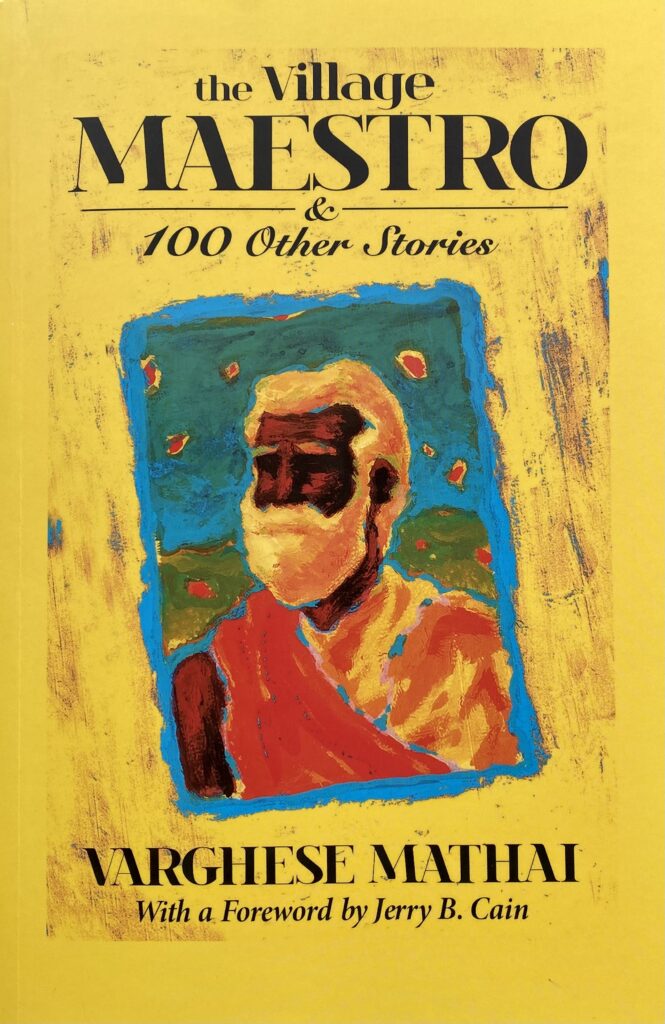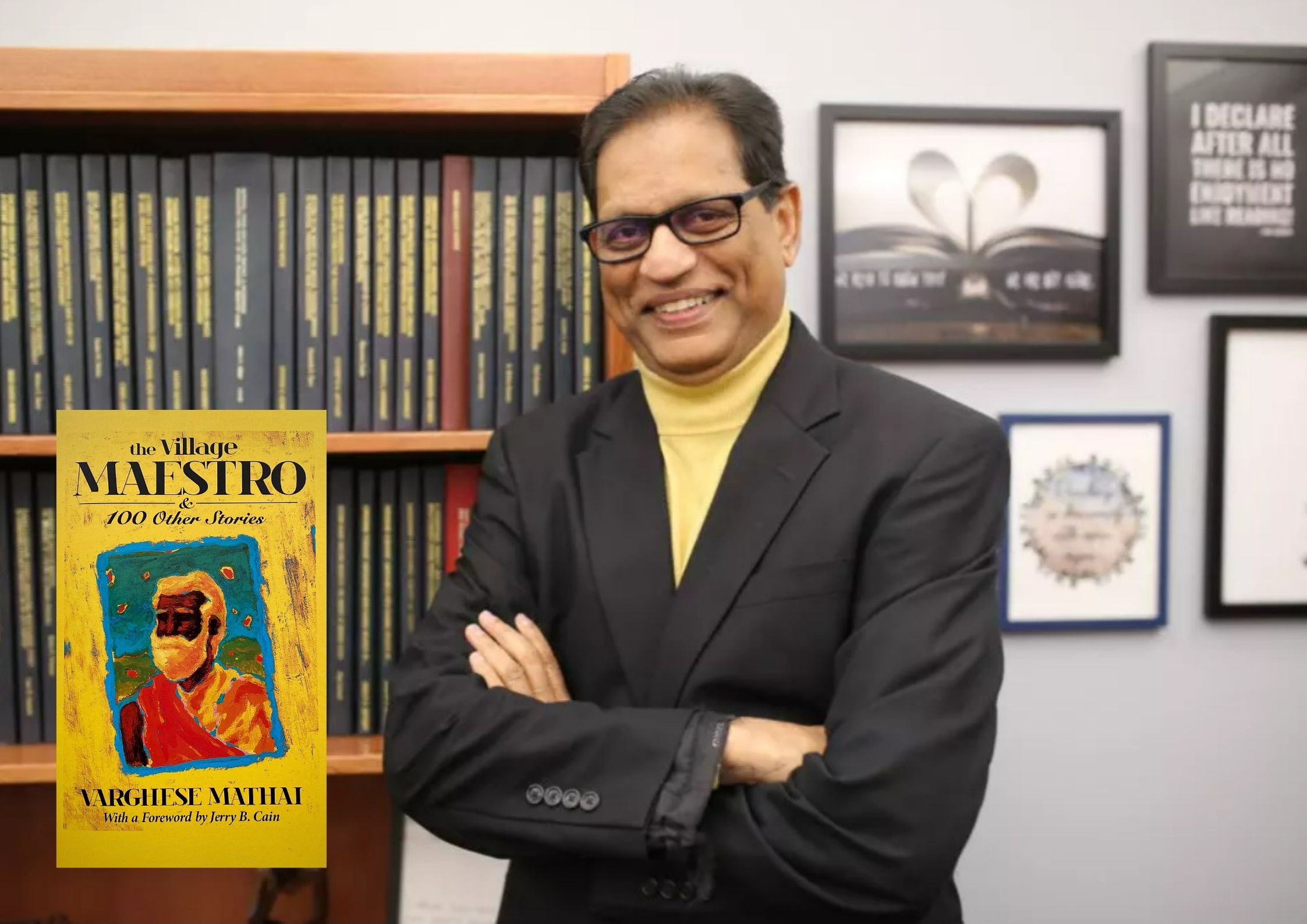The world lives by storytelling and the publication of The Village Maestro & 100 Other Stories by Dr. Varghese Mathai, Professor of English at Judson University in Elgin, Illinois, USA, has added 100 more fables, parables, and picks from folklore. These are the stories that Dr. Mathai has used as openers in his classes over the past thirty years. It is a treasure trove of moral stories, virtuous lessons, sermonic support material and inspirational reading for a multicultural audience.

A native of Kerala, India, Dr. Mathai completed his PhD at Baylor University in Texas and thus has a wonderful grasp of both sides of the globe. East meets west on Dr. Mathai’s desk. He is a Fulbright Scholar and yet enjoys teaching freshman level literature and composition courses. He writes with authority using short parables from the Jewish tradition, Chaucer, India, San Francisco, South Africa, New Orleans, England, France, Egypt and even from the former-planet, Pluto. This makes Village Maestro enjoyable and thought-provoking read.
Sometimes the vignettes seem like they came from Jesus, Will Rogers or the Brothers Grimm while others came from the challenges of daily living. Because of his background and education in India, The Village Maestro has an Eastern glow which adds mystery and power to each parable. Each micro story comes alive when read aloud as if told by the ancient village shaman or as a modern TED Talk, writes Jerry B. Cain, Chancellor Judson University, in his foreword.
The story is the maker of legacies. A culture lives the story it has been told. The differences in strength between one nation and another may well be in the core story that it has believed and lived out. The difference between winning and losing was often in the appealing story – shares Varghese whose method of storytelling which he is said to have adapted before beginning each of his class reminds one of the Panchatantra where Vishnu Sarma taught the royal princes life lessons through stories.
Here’s an extract – one of Varghese’s micro stories that’s terribly interesting and it is a statement – The Masterly Slave
We all know Cicero, the great Roman history maker. Julius Caesar sought his friendship and public support but got neither. The man was a lawyer, philosopher, writer, orator and senator of Rome. For over a thousand years, Europe considered him the gold standard for writing and public speaking. Of all of Cicero’s treasures, one was priceless: a slave born in his own household, named Tiro.
In his De Republica, Cicero says that conquered people might rightly remain as slaves if they were unable to govern themselves. Yet, as life goes, Tiro the slave was to govern Cicero’s affairs as his confidant, secretary, manager, editor, biographer, and the very preserver of Cicero’s legacy. Tiro’s absence would distress Cicero and even his family.
Slaves of his day were often employed as pedagogues, physicians, musicians, artisans, armorers, weavers, jewelers and what not. Not surprisingly then, Tiro had multiple roles. Tiro is known in history as the father of stenography, which he invented to record the orations of Cicero. An author in his own right, Tiro also wrote the biography of Cicero, besides editing, arranging and even publishing his master’s works. Tiro survived Cicero by nearly four decades as a free man, securing the fame of his slain master. Nothing matches the beauty of merit reigning from its rightful seat.
Extracted with permission from Pippa Rann UK (distributed in India by Penguin Random House India) publisher – The Village Maestro & 100 Other Stories by Varghese Mathai, author and scholar.












